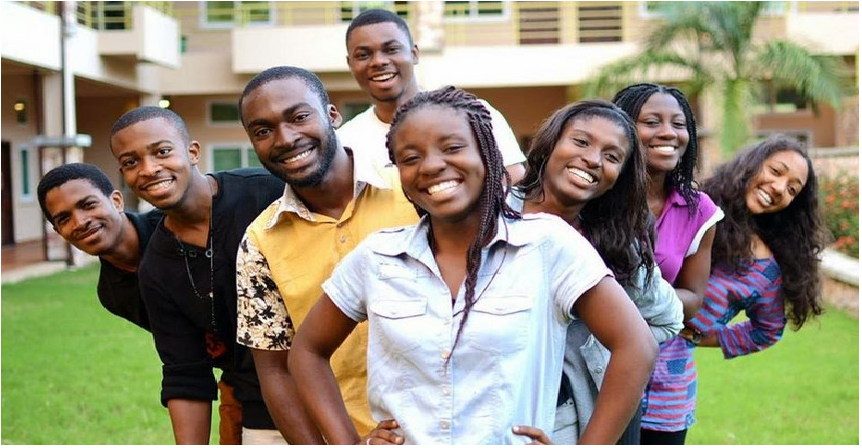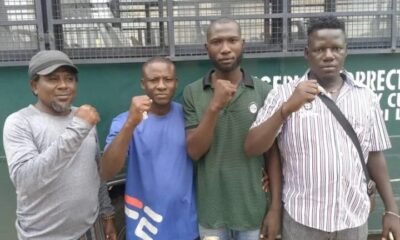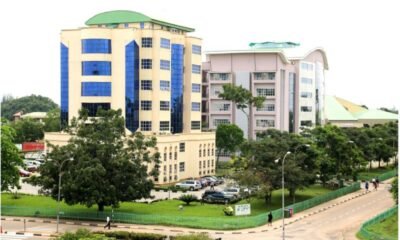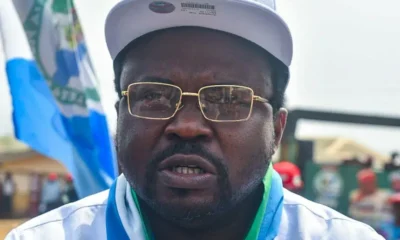Politics
Can Young People Redefine Governance And Secure Nigeria’s Future?

By Melody Okereke
Can young people redefine governance and secure Nigeria’s future?
In a packed lecture hall at the University of Ilorin in 2024, a young student asked a thought-provoking question to one of Kwara State’s commissioners: “If democracy is supposed to work for the people, why does it feel so distant from us?”
His question was met with murmurs of agreement. For many young Nigerians, this sentiment resonates deeply.
The gap between the ideals of democracy and its reality in Nigeria has never been more evident. Elections are marred by violence, governance riddled with corruption, and the very people democracy is meant to serve —young Nigerians— are often left on the sidelines.
But while the cracks in the system run deep, a growing movement of young leaders is determined to bridge them.
The Weight of Disillusionment
Democracy in Nigeria has always been aspirational, its promise overshadowed by systemic flaws. Since the return to civilian rule in 1999, the country has faced challenges that weaken its democratic foundations: low voter turnout, political godfatherism, and a lack of accountability in governance.
READ ALSO: This Google Empowerment Programme Will Lift Nigerian Youths
READ ALSO: Unity Bank Supporting Youths To Thrive In Digital Economy
For young people, these flaws are particularly frustrating. With over 70% of Nigeria’s population under the age of 30, the youths are the majority, yet they often feel excluded from governance. Their grievances are real: unemployment rates soar above 40%, education systems are underfunded, and public services are in decline. Democracy, to many, feels like a far-off ideal rather than a functioning system.
Turning Point: The Rise of Youth Activism
Disillusionment is giving way to action. Across the nation, young Nigerians are refusing to remain passive. Movements like #NotTooYoungToRun and #EndSARS have shown that young people are capable of mobilising and demanding change.
Take the 2018 #NotTooYoungToRun Act, which lowered the age requirement for political office. This legislative success was the result of relentless advocacy by youth groups who wanted representation to reflect Nigeria’s demographics. It was a symbolic victory, but it also laid the groundwork for deeper participation in governance.
In Lagos, voter education campaigns led by youth-focused organizations are helping young Nigerians understand their electoral rights and responsibilities.
In Enugu, young leaders have formed advocacy groups pushing for transparency in local governance. These efforts demonstrate a shift from protest to structured engagement.
The Challenges Ahead
Unfortunately, hope alone cannot fix a broken system. The obstacles facing young Nigerians are formidable. Financial barriers, for instance, remain a significant hurdle. In the 2023 elections, nomination fees for major party tickets ran into millions of naira —an unachievable cost for many young Nigerian political aspirants.
There is also the entrenched system of political godfatherism, where older, wealthier politicians wield disproportionate power, dictating who gets a chance to run for office. This practice perpetuates the cycle of exclusion and makes it harder for new voices to emerge.
READ ALSO: This Google Empowerment Programme Will Lift Nigerian Youths
READ ALSO: I’m Throwing A Big Challenge To Nigerian Youths –Ambassador Ajadi
Cultural perceptions further complicate matters even more. Young people are often dismissed as inexperienced or idealistic, unfit to handle the complexities of governance. These stereotypes create additional barriers to entry in the political arena.
Building a Path to Change
In a small community in Osun State, a young Nigerian, barely 30, decided that he had had enough of empty promises. The primary health center in his constituency was a shadow of what it once was —no drugs, no doctors, and patients were often treated under a leaking roof.
Despite limited resources, he mobilised local volunteers, reached out to NGOs, and crowdfunded enough money to repair the building, stock basic supplies, and recruit health workers on stipends. It was not a perfect solution, but it was a start. His story is a clear demonstration of what young people can achieve when they focus on grassroots leadership.
Yet again in Kano, a tech-savvy entrepreneur noticed a disturbing trend —voter turnout in urban areas was dismally low, particularly among the youths. Inspired by the need for change, he developed a mobile app that made voter registration information accessible and mapped polling units to help first-time voters navigate election day.
The app went viral, and during the next local election, voter participation in his area increased by 15%. Technology, he realised, was not just a tool for protests but a bridge to better governance.
Another instance is that of a young Nigerian activist who decided to tackle corruption head-on. Using social media, he began publishing budget allocations for local government projects and visiting project sites to document their status.
When a contract to build a school went unfulfilled, his exposé sparked public outrage, forcing the contractor to complete the job. His relentless pursuit of accountability inspired others in his community to speak up, proving that transparency can be contagious.
These stories show that change does not always begin at the top; it starts with individuals willing to take small, bold steps.
Young Nigerians are learning that governance is not just about holding power It should be about solving problems, whether that means running for office, developing innovative tools, or ensuring public funds are used effectively.
The road to redefining governance in Nigeria is not paved with quick wins or easy fixes. But in classrooms, community halls, and grassroots campaigns, young leaders are proving that the path to change is built one determined act at a time.
A New Generation of Leaders
The question of whether young Nigerians can redefine governance is not theoretical; it is being answered daily by their actions. Across the country, young people are proving that leadership is not about age but about vision, service, and the courage to challenge the status quo. For every barrier they face, there is a story of triumph.
READ ALSO: Harnessing Nigeria’s Youth Population In Fight Against Cyber Threats
A young Nigerian in Osun State revamps healthcare delivery in his community; a social entrepreneur in Kano uses technology to improve voter turnout; a young Nigerian activist leads transparency initiatives that hold local leaders accountable. These are the building blocks of a new Nigeria.
The Final Test
Nigeria’s democracy is undoubtedly at a crossroads. The decisions made today will shape the nation for decades to come. Young people in Nigeria have a unique opportunity—and responsibility—to take ownership of this moment.
But democracy cannot survive on the efforts of a few. It requires a collective commitment to building systems that prioritise equity, justice, and progress. It demands resilience in the face of setbacks and the belief that every small victory contributes to a larger transformation.
The future of Nigeria’s democracy will not be decided in Abuja’s halls of power alone. It will be determined in classrooms, community centers, and ballot boxes across the nation, where young people rise to the challenge of leadership.
The road is long, but the direction is clear. The youth of Nigeria are not just saving democracy—they are reinventing it.



























